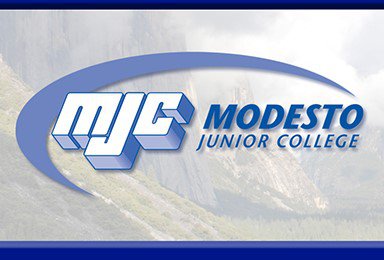Modesto Junior College announced that it has joined the California Community College Chancellor’s Office to launch a bold initiative to encourage, harness, and develop the inventive talents of communities across the State. The goal of the Invention and Inclusive Innovation (I³) initiative is to catalyze innovation and invention to solve social problems that existed before COVID-19 and those that have been created or amplified by the pandemic.
“Our communities were experiencing challenges pre-COVID, and the prolonged global pandemic has significantly increased the scope and scale of the challenges. We believe anyone in our community has the ability to be an inventor and entrepreneur provided the right environment and welcome this new opportunity to inspire and facilitate an entrepreneurial mindset that could lead to breakthroughs in solving real-world problems,” said Santanu Bandyopadhyay, Interim President, Modesto Junior College.
Faculty at Modesto will be one of four colleges statewide tapped to develop a program prototype that will guide learners on a path to discovery and facilitating the invention of new products that solve community problems for larger social good. Learners will work in teams to:
• Research challenges experienced by communities;
• Conceptualize systemic or technological solutions;
• Develop working prototypes through the invention process; and
• Learn to commercialize their inventions while keeping the social benefit at the forefront.
“This initiative aims to spark innovation in every region of the State to address small challenges that impact dozens of people to big challenges that are disrupting the lives of thousands of people,” said California Community Colleges Chancellor Eloy Ortiz Oakley.
The I³ program is a collaboration between the Chancellor’s Office and the Lemelson-MIT Program, modeled after the Lemelson-MIT InventTeams. The InvenTeams are groups of high school students, educators, and mentors that invent technological solutions to real-world problems of their own choosing. The InventTeams initiative has been changing teaching and learning and providing young people with creative problem-solving skills to flourish in college and career for over 15 years, including having received patents for their high school projects.
Jeremy Wilson, Instructor of Engineering and one of two faculty leads on the project, shared that “…this is a fantastic opportunity for MJC, its students, and faculty. Creative problem solving is a skill that is needed now, more than ever, to address the multitude of community issues that we face. These problems need creative thinkers across all majors and I look forward to working alongside students from all backgrounds to tackle some of these issues.”
Modesto Junior College will join the following colleges during the prototype stage: Sierra Community College in the Rocklin, Sierra Joint Community College District; Chaffey Community College in the Rancho Cucamonga, Chaffey Community College District; and College of the Desert in the Palm Desert, Desert Community College District.
Student recruitment for the initial I³ prototype will take place in Spring 2021 and the program is expected to be scaled to 20 additional colleges for implementation in 2022.
Debbie Gilbert, Professor of English, is the second faculty lead on the interdisciplinary team. “It’s exciting to imagine MJC as an incubator for inventions that solve local problems and energize our regional economy,” she said. “Similar programs have inspired all kinds of students and faculty nationwide to activate their passion, think and work together in new ways, and accelerate their learning.”
She shared that the project is open to all MJC students, “The best innovation happens when many minds come together to identify and research problems, design and implement solutions, manage the project, and promote the product.”
As one of the most diverse systems of higher education, California community colleges will increase access to invention education to women and communities of color who have historically been underrepresented in the innovation and invention economy, but whose life experiences provide valuable insights and perspectives to tackle systemic changes.
Modesto Junior College, one of the oldest community colleges in the state, was founded in 1921 to serve the first junior college district established under State Legislature. It serves over 26,000 students, of which 43 percent are the first in their family to attend college. Adult learners make up 36 percent of the student population. The college is a federally-designated Hispanic-Serving Institution with 54 percent of the student population being Latinx. Modesto Junior College offers 87 Associate Degree programs, over 300 online classes, and 21 intercollegiate sports.
The California Community Colleges is the largest system of higher education in the nation, composed of 73 districts and 116 colleges serving 2.1 million students annually. California community colleges provide career education and workforce training; guaranteed transfer to four-year universities; degree and certificate pathways; and basic skills education in English and math. As the state’s engine for social and economic mobility, the California Community Colleges supports the Vision for Success, a strategic plan designed to improve student success outcomes, increase transfer rates and eliminate achievement gaps. For more information, visit the California Community Colleges website or follow them on Facebook and Twitter.
About the Lemelson-MIT Program: The Lemelson-MIT Program celebrates outstanding inventors and inspires young people to pursue creative lives and careers through invention. The program was founded in 1994 by Jerome H. Lemelson, one of the U.S. history’s most prolific inventors, and his wife Dorothy, at the Massachusetts Institute of Technology in 1994. It is funded by the Lemelson Foundation and administered by the School of Engineering at MIT, an institution with a strong ongoing commitment to creating meaningful opportunities for K-12 STEM education.





